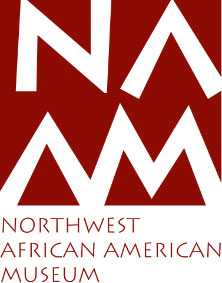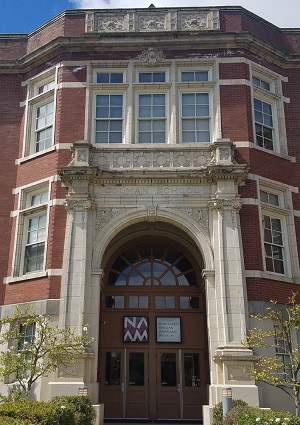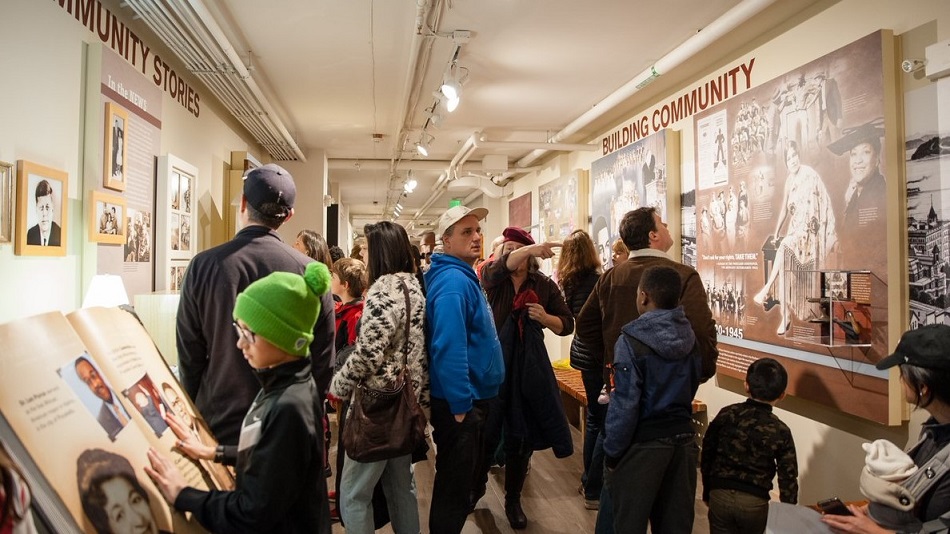Justice Journey
By Jeremiah Watchman aka Wallace Clausen, Chair for Outreach and Service, Kent Covenant Church
 As I hunt for a parking spot at the Northwest African American Museum, I ask myself “Why have we come here?’ My wife and I, with another couple, are part of a church group of thirty who carpooled the half-hour drive from Kent, WA. Directly ahead, like a beckoning sentinel, is a red bricked building. Once operated as a public school, now iconic words ring from its aged chambers: “Free at last, free at last; thank God Almighty, free at last!”
As I hunt for a parking spot at the Northwest African American Museum, I ask myself “Why have we come here?’ My wife and I, with another couple, are part of a church group of thirty who carpooled the half-hour drive from Kent, WA. Directly ahead, like a beckoning sentinel, is a red bricked building. Once operated as a public school, now iconic words ring from its aged chambers: “Free at last, free at last; thank God Almighty, free at last!”
I’m immediately surprised upon entering – not by the building’s narrow hallways reminiscent of former use – but stunned by the overwhelming presence of whiteness. I’m expecting a reverse majority-minority experience, especially since this is Martin Luther King Jr.’s Birthday. I assume that on this day of all days, African Americans would dominate the rainbow of visitors. Shockingly but encouragingly, the building is filled with white folk seeking to understand the history and culture of Northwest blackness. That wouldn’t have been the case when this building functioned as a school in the heart of Seattle’s ‘colored’ district.
Inside I gaze at period relics – autobiographical journals and dusty church bulletins, historic photos alongside more contemporary artwork – all chronicling the black experience in the Northwest. Collectively, a community’s talents and desires are revealed, yet ever present are contextualizing reminders of a white nation’s push to exploit and oppress. From more than one portrait hangs a palate of raw emotions. Framed by countenances wrinkled in anguish, yet informed by defiant body postures, a pulsating opposition to an unseen ruling hand is visible.
This experience is one of three, all intentionally designed to focus Kent Covenant Church’s historically white congregation on one overarching question: What is biblical justice?
 Two weeks later, on a Saturday afternoon between the lull of Super Bowl hype and a time when most New Year’s resolutions have faded, half a hundred congregants gather in our church’s student ministry building to watch the movie, ‘The 13th.’ A recently released book, Rethinking Incarceration, provides historical background for the film’s provocative content. The book’s author, Dominique DuBois Gilliard, is the ECC’s director of racial righteousness and reconciliation for the Love Mercy Do Justice initiative. The next morning, Pastor Gilliard preaches on incarceration and community.
Two weeks later, on a Saturday afternoon between the lull of Super Bowl hype and a time when most New Year’s resolutions have faded, half a hundred congregants gather in our church’s student ministry building to watch the movie, ‘The 13th.’ A recently released book, Rethinking Incarceration, provides historical background for the film’s provocative content. The book’s author, Dominique DuBois Gilliard, is the ECC’s director of racial righteousness and reconciliation for the Love Mercy Do Justice initiative. The next morning, Pastor Gilliard preaches on incarceration and community.
For Kent Covenant Church, however, what is important, even significant, is how we frame these experiences through the lens of biblical justice. For myself, I discover I am pivoting to the centrality of the cross where – all men, all women, all of God’s good creation – reside with equality and grace. But, in Pastor Gilliard’s view, it’s not in the residing that evangelicals must rest, rather it’s in our prophetic responses where God’s mercy finds a vindicating justice. For one, this may be a response to feed the homeless; for another, ministry undertaken inside imprisoned walls; while the truly courageous confront institutions where systemic racism lurks, blatantly hiding under code slogans and hate words – even if those systems and symbols exist in the church.
The clarion call of ancient prophets, those who saw and heard the cries of religious and societal injustice in Ancient Israel, echo on as today’s watchmen walk the nation’s streets and homes, invading governmental and judicial offices. Take heed! Their warning cry spans a distant past with today’s present. The prophets served as forerunners for the coming Messiah and his message of good news for all. They prepared a platform where Jesus would say: “Whatever you did for one of the least of these brothers of mine, you did for me” (Mt. 25:40). Regardless of ethnicity or social class, wealth or status.
The museum question – why have we come – directs us to the response question of biblical justice. From ancient scrolls the voice of Micah still rings loudly. He challenges: “He has showed you, O man, what is good. And what does the LORD require of you? To act justly and to love mercy and to walk humbly with your God” (6:8).
This is the quest Kent Covenant is seeking through experiences as simple as a trip to a justice museum, or watching a film on systemic racism. It spills a demanding question: O Lord, what do you require of Evangelicals today?

